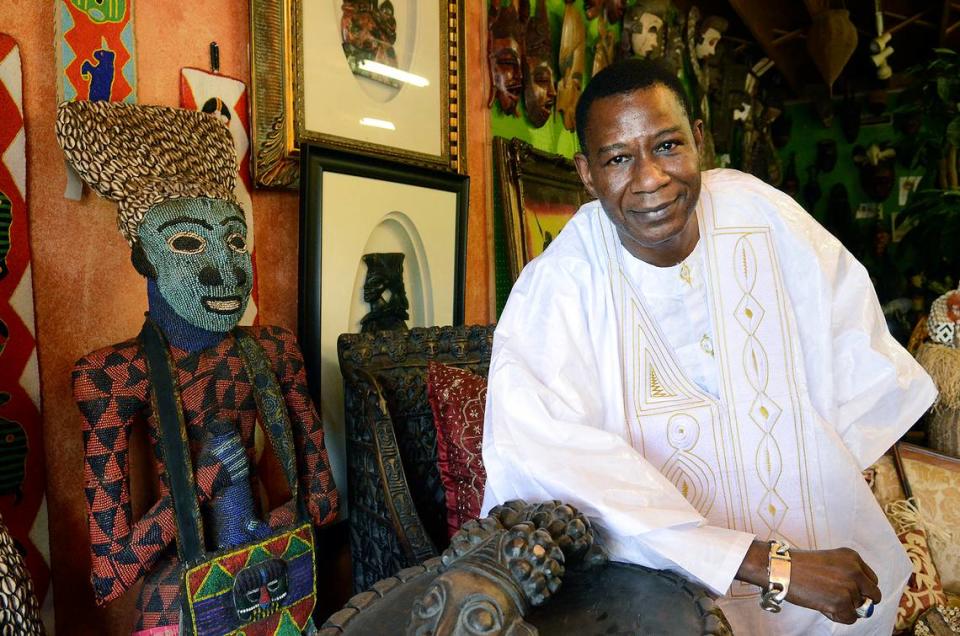When did Charlotte’s Juneteenth celebrations start? How have they changed? Our timeline
June 19, 1865. A day of freedom and indescribable joy. On this date, federal troops arrived in Galveston, Texas, to ensure that all enslaved persons were freed. A year later, freedmen in Texas celebrated the first “Jubilee Day” to commemorate the end of slavery nationwide.
As Black people migrated from Texas to all corners of the country, the Juneteenth tradition spread with them. This timeline highlights how the celebration took root and blossomed in Charlotte:
1977: According to Observer archives, June 19, 1977 marks the first official Juneteenth celebration in Charlotte. The Charlotte Equal Rights Congress hosts the event.
The precise words that prompted Juneteenth
1986: The Charlotte Equal Rights Congress sponsors its ninth-annual Juneteenth Freedom Day Celebration. at Revolution Park with approximately 100 people in attendance.
1989: Albert Turner, a civil rights leader who worked closely with Dr. Martin Luther King Jr., joins the 12th annual celebration of Charlotte’s Juneteenth Freedom Day.
In an Observer article published days prior to the event, committee members share their thoughts on the importance of the celebration.
“’We feel celebrating Juneteenth will help educate our youth about where we have come from and the price we paid to get where we are today,” program committee member Thelma McKoy says in the story.

1997: Senegalese businessman Pape S. Ndiaye creates Juneteenth Festival of the Carolinas after realizing there was no large, centralized celebration that welcomed participants from across the state According to Juneteenth of the Carolinas’ website, the festival aims to share the history of chattel slavery in the USA and to commemorate its historical ending. The major intent of the festival is to examine the cultural heritage of enslaved Africans and their descendants through art, education and research.”
24 years ago, he brought Juneteenth to Charlotte. Today, he wants to see unity.
2003: The sixth-annual Juneteenth Festival of the Carolinas celebration draws a crowd of nearly 18,000 visitors at Independence Park. The weekend festival featured traditional African dancers of the Kabaka African Dancers and Drummers group, authentic Caribbean dishes and lines of vendors tables selling African incense, jewelry made of shells and wooden beads and furniture fashioned from buffalo tusks.
2007: North Carolina officially recognizes Juneteenth as a state holiday and vows that, if it becomes a nationally recognized holiday, the North Carolina General Assembly would recognize the 19th day of June each year as Juneteenth National Freedom Day.
2014: About20,000 people participate in the Juneteenth Festival of the Carolinas, roughly 10 times more than Ndiaye recalls attending at the first festival in 1997.
Celebrating Juneteenth in Charlotte? Consider Durag Fest, poetry open mic, winery tours
2015: On the holiday’s 150th anniversary, the Juneteenth Festival in Charlotte is now the largest Black Independence Day celebration in North Carolina.More than 20,000 attend the festival, which now spans Thursday to Sunday. The celebration kicks off with a Culture Camp designed to teach children about African culture. Other activities include live music and dance, a parade, international foods, a fashion show, historical drama and free healthcare screenings.
2018: The inaugural Durag Fest showcases Black culture and individuality and attracts 1,200 attendees.
2021: On June 16, Congress passes a bill to make Juneteenth the nation’s 12th federal holiday. President Joe Biden signs the bill into law the next day. In Charlotte, the Juneteenth Festival gears up for its 24th annual celebration.
The Durag Festival also returns. Its mission? To make Juneteenth “the most celebrated holiday on Earth.”

